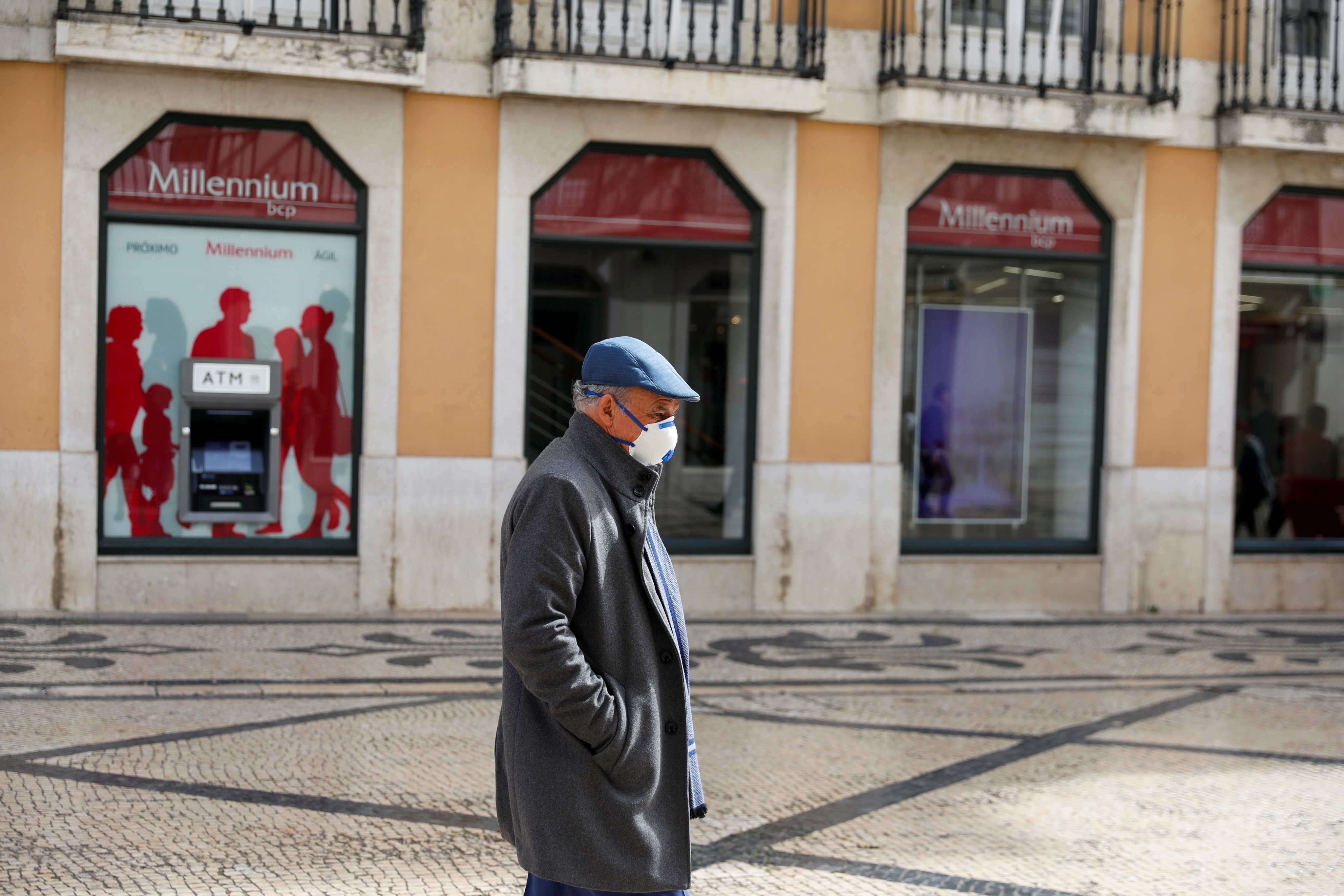The Portuguese comrades of Colectivo Marxista express their firm solidarity with the strike of call-centre workers in Portugal. The strike has been ongoing since 24 March and will continue until at least 5 April.
Now that there are 3,000 confirmed cases of COVID-19 in Portugal and almost 50 deaths, all non-essential work should have stopped long ago. The advice of health organisations and even of the government itself states that this is a necessary measure, not only for the safety of workers but their families and the wider public. It is apparently supposed to be a condition of the state of emergency we are in.
 There are 3,000 confirmed cases of COVID-19 in Portugal, non-essential work should have stopped long ago / Image fair use
There are 3,000 confirmed cases of COVID-19 in Portugal, non-essential work should have stopped long ago / Image fair use
But this work hasn’t stopped. In the cities, construction work continues as normal, and big factories remain open for non-essential production. Meanwhile, workers in essential sectors such as the dockworkers toil in degrading and unsafe conditions – with no on-site safety provisions, inhumane working hours and mass layoffs enforced, as their union SEAL has reported. Enough is enough. We have to fight back, and demand that real safety measures be taken for all workers and their families!
The union of call-centre workers (STCC) is showing the way forward. Call centres are among the workplaces most vulnerable to the spread of infection. Workers are at least 50-to-a-room, crammed onto shared tables with shared equipment and little space in between one another, breathing the same air. Some first-hand accounts of working in Portuguese call-centres during the coronavirus pandemic can be found here. A 34-year-old Italian call-centre worker with no underlying health conditions has already died this week from catching the coronavirus at work. This could have become a mass phenomenon in Portugal too if action were not taken.
Virtually all of the work done by call-centre agencies in Portugal is non-essential, in areas such as fashion and tech retail, digital troubleshooting, hospitality, advertising and entertainment. These call centres stopping work will in no way have impacted public safety and security, or disrupted essential services and supply chains. What it will have affected is the profits of super-exploitative multinational call-centre companies, most of whom take commission for every call taken by their workers.
It is also worth noting that the technology exists for all call-centre work to be done remotely from home. Some employers who already had this technology in place before the pandemic have been able to utilise it - without properly compensating their workers for the effects the work will have on household internet and electricity bills. Of course, for the agencies who do not have this technology in place, even the little investment required would be too harmful to their profits to bear thinking about. Again, the health and safety of workers means nothing to these people.
An ultimatum was put to call-centre employers almost two weeks ago, that this strike would take place if measures were not taken to secure the safety of call-centre workers. The employers offered nothing, and so the strike has gone ahead.
But it is not enough to provide solidarity with the courageous struggle of the call-centre workers! To strengthen their cause and ensure they do not continue to lose their wages during this difficult time, we must expand the strike!
Expand the strike across the sector!
All other non-essential sectors should follow suit!
Strike until we all have our safety and job security!
No loss of pay, full compensation of remote work costs!
No job cuts, no unsafe work!
Life and health before profit!
THE CALL-CENTRE STRIKE IS STILL ON: STATEMENT FROM THE STCC
1. The STCC (Call Centre Workers’ Union) has called for a strike between 24 March and 5 April inclusive. The prior notice immediately excluded the “SNS24 line (National Health Service line) and other essential public health services, support for INEM (Emergency Health Services), support for security forces and life support line”.
2. This strike aims to win: a) immediate change to remote working as outlined in law; b) immediate suspension of the activity of all call centers that do not perform socially essential functions. Workers must be allowed to be in self-isolation without loss of income while waiting for the company to sort technical issues pertaining to remote working. c) Any activity continuing in call centres must guarantee the following: 1) self-isolation without loss of income to all workers in risk group and those who recently made trips abroad 2) at least 2 metres of spacing between workers, 3) provisions for both individual and reoccuring cleaning and disinfection of working spaces 4) no reprisals or discrimination against workers who choose to be absent from work in order to remain in self-isolation;
3. Due to pressure from thousands of workers and our Union, in many call centers the transition to remote working is underway, and the Government has decreed “employers must allow for remote working, regardless of the employment relationship, whenever the functions in question allow it”. We know, however, that this does not mean that all the measures that led them to call this strike are guaranteed. Therefore, its execution is still justified.
4. When this strike was called, the State of Emergency had not yet been decreed, which suspended the right to strike whenever it “may compromise the functioning of critical infrastructures or healthcare units, as well as sectors vital to the production and supply of essential goods and services to the population”.
5. Bearing this in mind, the STCC assumes that if it continues, the strike we have called for will have some restrictions. In this sense, we instruct all workers not to join the strike if their responsibilities fall within the definition above, namely, if they relate to “economic sectors vital to the production and supply of essential goods and services to the population”. These sectors are: production, supply and emergency providence of water, gas, electricity, communications, public transport, private vehicles, as well as basic goods and services such as food production and supply. These are now excluded from the scope of the strike, as are the essential sectors mentioned above. It is up to each worker to assess whether the function he or she performs and/or the sector in which it operates is within this definition. Each worker can and should ask the STCC for guidance if they feel the need.
6. We assert that, regardless of the sector or function in question, all workers exercising functions for foreign markets continue to be covered by the strike notice, since it is not the State of Emergency decreed in Portugal to safeguard “production, supply and supply goods and services” from other countries;
7. Regardless of the function they perform or the sector to which they provide service, workers maintain the right to protection from exposure and spread of COVID-19, which is an obligation of employers, as well as requiring the transition to remote working;
8. We have adapted to the restrictions imposed on the right to strike by the State of Emergency. This does not alter the position of the STCC regarding the State of Emergency and in particular the limitations of democratic freedoms that it implies. On the contrary, in the face of the wave of redundancies and lay-offs that are being feelt other professional areas, it is demonstrated that, more than enforcing a quarantine, the State of Emergency has the perverse effect of limiting workers and citizens in their defense of the consequences pandemic economic and social conditions. Nevertheless, we do not want to place call-center workers in situations that endanger their employment and rights and hence we have given the orders above that restrict the scope of the strike.
9. We chose to begin the strike on 24 March, but not only because we did not see our demands fully satisfied. But also because we believe it is essential not to give up the means that workers and the population have to assert their rights, specifically the right to strike. We want remote working without loss of pay and paid self-isolation in the meantime. We also want the right to have rights and to fight for them, something that will be more necessary than ever in the difficult times in which we live.

